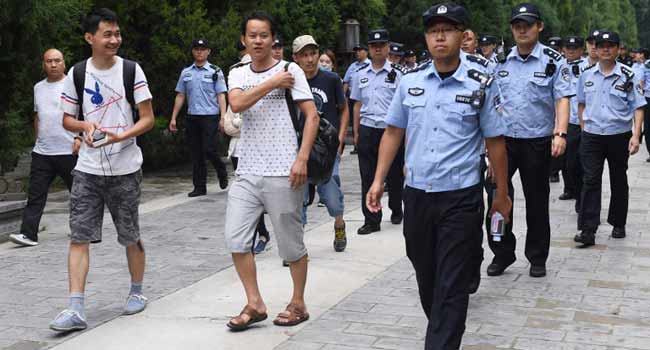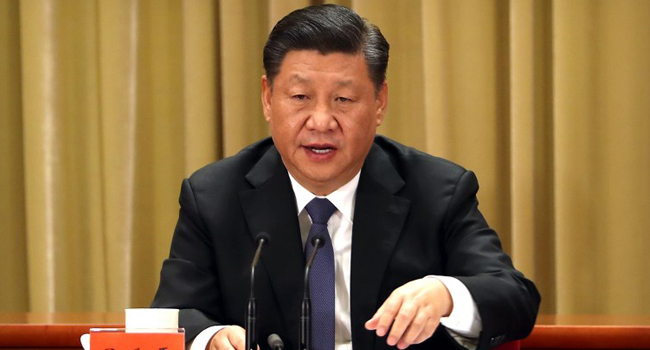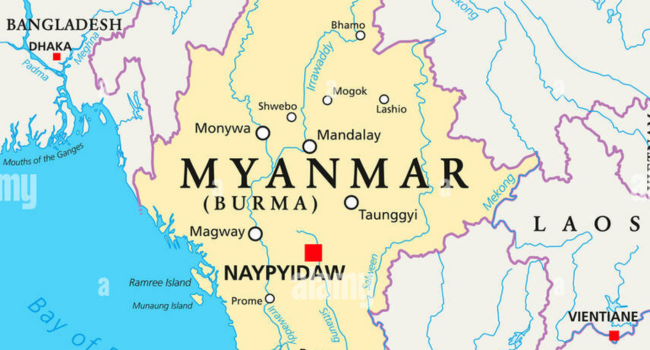
Hundreds of police patrolled the streets of Beijing’s financial district Monday as Chinese authorities thwarted a planned protest against money lost in risky peer-to-peer (P2P) lending platforms and a lack of government help.
Protesters told AFP they had come from every corner of China in hopes that by gathering en masse the government would recognise their grievances and take action.
Possibly over 8,000 people were expected to gather at the Beijing protest, one petitioner said.
But instead a massive police dragnet rounded people up and took them away in buses.
“All these platforms have failed and hundreds of millions lost, yet the government still doesn’t regulate anything,” said a man in his 30s who had lost 110,000 yuan ($16,000) in a P2P platform called “Prosperous Pig”.
“I knew my investment was a risk, but to end up without a cent isn’t mere risk, it’s fraud — and the government hasn’t dealt with it. In China, we’re the best at passing the buck.”
Ads for P2P services were “simply everywhere” — on his phone, in movie theatres — once the government began encouraging internet finance as a way to boost the economy.
So he invested, but in mid-July, his money disappeared. He went to the platform’s Shanghai headquarters but its office was deserted.
After repeated, ignored appeals in Shanghai and his native Shaanxi province, he was now trying his luck in Beijing. Authorities in Shanghai had already prevented a protest there.
“Every word we send or say by phone is data they use to control and track us,” he said bitterly, minutes before nearly 100 police showed up and he was taken away.
‘Problematic platforms’
China’s P2P industry, worth some $195 billion according to Bloomberg News, is the world’s largest but is highly risky and unregulated.
The number of failed Chinese P2P firms has soared in recent years, from just 93 in 2013 to 4,334 as of this June, Bloomberg cited Shanghai-based P2P consultancy the Yingcan Group as saying.
In July alone 164 firms were identified as “problematic platforms” from which investors could no longer withdraw their funds, according to P2P database Wangdaizhijia.
An employee surnamed Li at the Westin hotel adjacent to the site told AFP all hotels and businesses in the area had to report petitioners and refuse them entry.
“If we check someone’s ID and find they’re a petitioner, we won’t let them stay -– for the sake of our customers’ safety. Who knows what kind of emotional state they’d be in and whether they’d make a scene,” he said.
‘Black jail’
One middle-aged man, who had lost 200,000 yuan ($29,000), travelled all night to reach Beijing, standing upright for the 10-hour train journey as all seats were booked.
“We just want the government to pay attention to this situation, to check the flow of funds and see if there is corruption. This is our purpose,” he explained.
He wasn’t particularly optimistic that his trip would yield any outcomes but said he had to try, even though he was due back at work the very next day.
“It’s good that the police are here, because it means the highest level authorities are paying attention to this issue, which is our goal,” he told AFP.
“I’m not afraid of being arrested because it just won’t happen. This is a society ruled by law, and I didn’t break the law.”
Two officers came to tell him that they had vehicles waiting to take him to a central location where petitioners against all P2P firms had congregated, to facilitate a meeting with authorities.
“We’re not here to snatch you, relax! There are so many people who’ve come — what could happen? Beijing police aren’t randomly violent,” said one, smiling.
But the two soon returned with a battalion of officers who checked the IDs of everyone in the public park before leading him and some 20 other petitioners away.
They were marched onto a public bus, which drove them away under police escort.
More than 120 such buses lined the roads around the China Banking Regulatory Commission, where the protest was to occur.
A man in plainclothes sealed the windows of one vehicle shut with clear tape before it drove off.
The regulatory commission did not respond to faxed requests for comment.
A policeman told AFP protesters would be taken to a neighbourhood on the outskirts of Beijing, where China maintains what rights activists describe as “black jails”. Petitioners are typically held there until minders escort them back to their hometowns.
“Cases sent there are essentially sent into a black hole — people never get any results and end up like characters in ‘Waiting for Godot’,” explained Patrick Poon, China researcher for Amnesty International.
AFP



